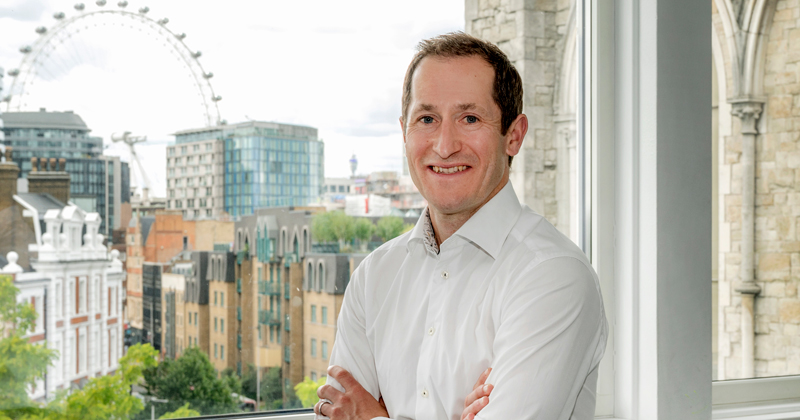“Doubling down” on quality, boosting retention numbers and getting more recruits into headship – the new Teach First chief executive speaks to Schools Week about his plans…
James Toop is something of a poster boy for Teach First, the education charity tasked with recruiting top graduates to teach in England’s poorest schools. But he also bears the hallmarks of why it has divided opinion.
He joined the scheme’s initial cohort in 2003 after graduating from the University of Oxford, working as a French teacher at a struggling school in Croydon.
He left the classroom after two years to work in management consultancy, before returning to education to run leadership organisations and, more recently, a food charity to tackle childhood obesity.

Now, he’s back at Teach First – but this time to lead it, succeeding Russell Hobby who has run the organisation since 2017.
He joins at a pivotal time, with some alumni feeling the charity has lurched too far from its core purpose: to recruit the best.
A new tender for the contract that Teach First oversees is due to launch soon too, with the Labour government shifting focus away from Russell Group applicants towards retention.
‘Delivering change-makers’
Toop said it was “too early to say” whether Teach First would bid again.
The organisation must “make sure that we’re delivering the mission – delivering really high quality and bringing those change-makers into education, and supporting the wider movement for change.
“That’s the unique thing that Teach First does – that’s my absolute focus. And that’s why we’ll need to have a look at the contract and see: does it allow us to deliver those things going forward?”
Some say the organisation had moved away from its original MO, choosing to prioritise quantity over quality.
Toop said: “At its core, Teach First is about quality, and that’s going to be the bit that I really double down on.”
But recruits did not have to be exclusively from the Russell Group.
They “absolutely have to have a really great degree” and show “leadership potential and the moral purpose, to want to really make a massive difference to the life chances of children who often don’t get a great teacher”.
Leadership push
Toop said part of ensuring Teach First attracted “the right people” – including top graduates who might otherwise not have considered teaching – would always mean some leaving after their agreed two years.
But Teach First “can do and should do” more to boost retention and ensure some “stay for a third, fourth, or fifth year”.
“We need to accelerate more of our community into leadership roles,” said Toop, who was chief executive of Ark’s Teaching Leaders start-up, and of Ambition School Leadership.
Building a stronger “leadership pathway and progression… will start to have a knock-on effect on retention”.
There are now 150 Teach First headteachers, but he’d like to see that hit 500 by 2030.
He said Teach First would be “investing in the leadership pathway in the second year of the programme, to really get them thinking about how they can
Alumni mentors
Ambassadors were “much more likely to progress” if they were exposed to, or mentored by, Teach Firsters who went on to become leaders.
One of Toop’s three “big priorities” for the next five years will be to “reignite” Teach First’s “movement for change” by “harnessing” the power of the charity’s more than 20,000 alumni.
“There’s a big opportunity to see how we join the dots of the ambassador movement, bring together business, NGOs, civil society and education together to drive real change.”
Another priority is “to get the right people where they’re needed most”.
While it’s “easy” to recruit in London and major cities, the charity needs to address the “new challenge of educational disadvantage sit[ting] in rural coastal communities, small towns”.
Targeting Gen Z
His third priority is to make teaching “the career of choice for Gen Z”, who he describes as “very driven by purpose and making a difference”.
Teaching in a challenging school when fresh out of university is “life-changing”, he says. “You learn so much about yourself. You can see the impact that you make.”
But he says teacher pay and conditions must improve, and the narrative needs reframing – which he hopes Teach First can play a leading role in.
“We are going to prove that no matter where you’re born, what your family income is, you can achieve.”







Your thoughts